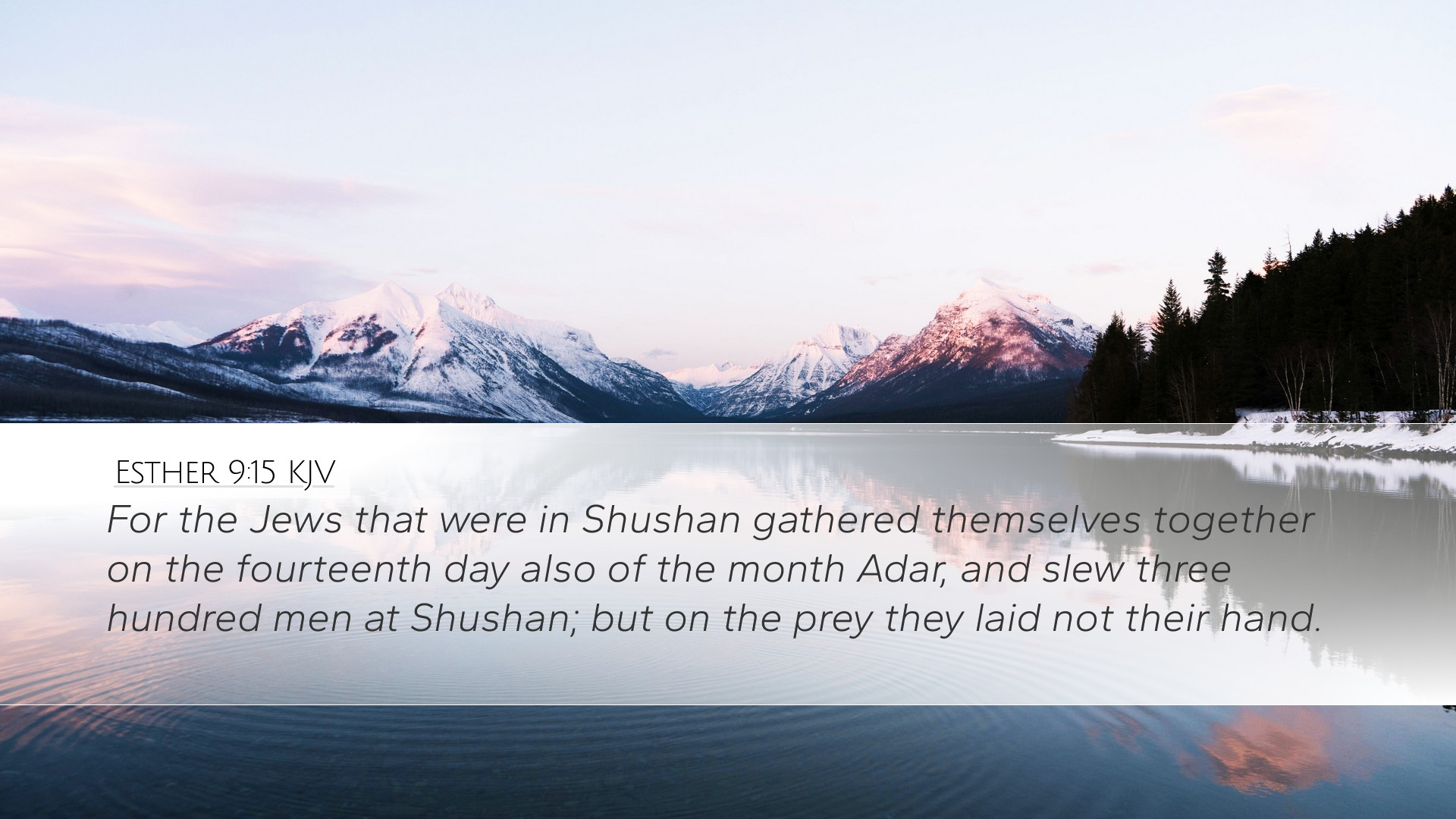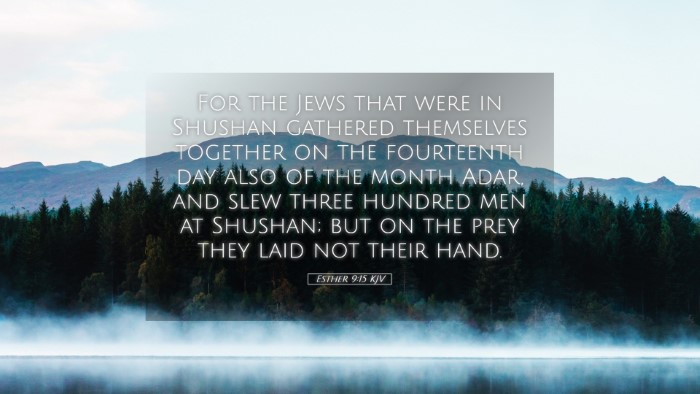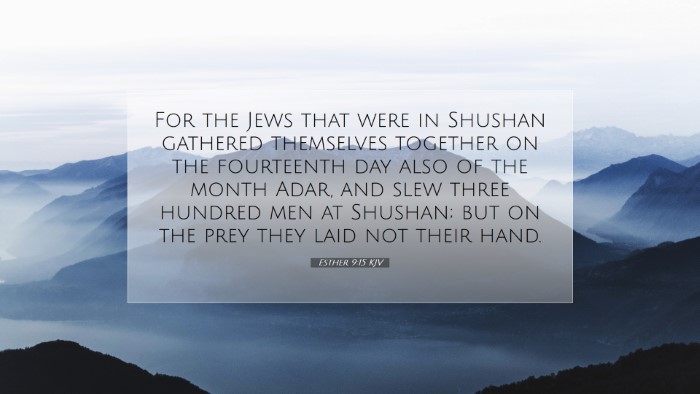Commentary on Esther 9:15
Bible Verse: Esther 9:15 - "For the Jews that were in Shushan gathered themselves together on the fourteenth day also of the month Adar, and slew three hundred men at Shushan; but on the prey they laid not their hand."
Introduction
The verse in question falls within the larger narrative of the Jewish celebration of Purim, a festival established to commemorate their deliverance from the plot of Haman. This particular passage highlights both the actions taken by the Jews in Shushan and the principles underlying their actions. The insights provided through the works of Matthew Henry, Albert Barnes, and Adam Clarke illuminate several important themes surrounding this text.
Contextual Background
Esther 9:15 occurs after the decree established by Esther and Mordecai, which permitted the Jews to defend themselves and counteract the threats posed against them. Understanding the historical and cultural background of this text is essential for appreciating its significance.
- The Nature of the Threat: Haman's edict aimed for the annihilation of the Jewish people. In response, the Jews exhibited courage and unity, which are critical themes throughout the narrative.
- Location of Events: The reference to Shushan represents the capital of the Persian Empire, a place of significant influence. The actions of the Jews here indicate the prominence of their victory and their right to defend themselves.
Analysis of the Verse
In this verse, two major components warrant discussion: the gathering of the Jews and the specifics of their engagement with their adversaries.
The Gathering of the Jews
Matthew Henry notes that the assembly of the Jews signifies their determination and preparedness. The unity in their response to the threat was vital for their survival. This gathering serves as an example of collective identity and faith.
Actions Taken
They "slew three hundred men at Shushan," which indicates a decisive action against those who sought their destruction. Adam Clarke points out that the act of self-defense was a necessary response to a legitimate threat. However, it is noteworthy that they "laid not their hand on the prey," highlighting a critical moral stance.
Moral and Ethical Considerations
Albert Barnes emphasizes the ethical implications of their actions. The Jews were not driven by greed but by the necessity of survival. They did not engage in looting but focused on defending their lives and eliminating their aggressors. This can teach us about the distinction between justified defense and exploitation.
Theological Reflections
This passage brings to light several theological insights for reflection:
- Divine Providence: The events narrated show God's sovereignty over history, particularly regarding His chosen people. The Jews' victory is depicted as a fulfillment of God’s promise of protection.
- Justice and Righteousness: The actions of the Jews reflect a pursuit of justice—retaliating against their enemies while maintaining integrity. This distinction is critical for understanding biblical justice.
- The Role of Community: The gathering signifies communal strength, wherein believers support one another in times of crisis. The church today can draw parallels, understanding the importance of unity in the face of adversity.
Conclusion
Esther 9:15 provides rich insights into the topics of community action, moral integrity, and the recognition of divine providence amidst human endeavors. For pastors, students, theologians, and scholars, this verse challenges us to consider how we respond to threats against our faith and our communities. It invites reflection on the balance between justice and mercy while encouraging united action rooted in faith and ethical morals.
Further Reflections for Study
For deeper study, consider:
- The historical context of the Book of Esther and Jewish festivals.
- The character and role of Esther and Mordecai in God’s deliverance.
- The implications of self-defense in biblical theology.


